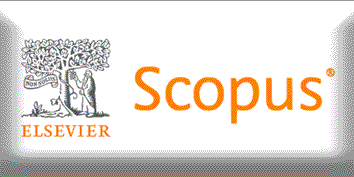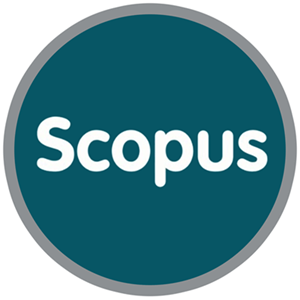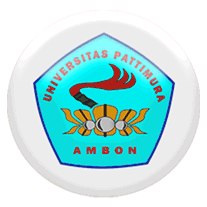COMPARISON OF AUTOREGRESSIVE MODEL WITH MISSING DATA TREATED USING ORDINARY LEAST SQUARES AND INTERPOLATION WITH WEIGHTING METHOD
Abstract
Bandung is committed to contributing to the achievement of the Sustainable Development Goals (SDGs) in Indonesia. One of the efforts that can be made to support the 13th pillar of SDGS regarding climate change is to forecast the air temperature of Bandung City in the future. One of the models that can be used for forecasting air temperature data in Bandung is the Autoregressive (AR) model. Based on BMKG data, often the time series data obtained has missing data. Therefore, in order to do a good time series analysis, it is necessary to make an effort to correct the missing data. The purpose of this research was to examine the procedure for overcoming missing data in the AR model using the Ordinary Least Squares (OLS) method and Interpolation with Weighting, which was applied to forecasting the average air temperature data in the city of Bandung. The research methodology followed the Box-Jenkins 3-step procedure. The first-order AR estimation parameter model was estimated using the OLS method and then used to overcome missing data using both methods with weighting using R software. Both methods resulted in an estimated value of 0.9991 and the same Mean Average Percentage Error (MAPE) value of 2,459% with very accurate criteria. Therefore, to overcome the missing data on the average air temperature data in the city of Bandung with a parameter estimator close to one, we got the same result for both methods.
Downloads
References
“Tujuan Pembangunan Berkelanjutan yang Perlu Diketahui oleh Pemerintah Daerah,” [Online]. Available: https://www.uclg.org/sites/default/files/tujuan-sdgs.pdf . [Accessed 20 Mei 2021].
D. MenLHK, “Perubahan Iklim,” [Online]. Available: http://ditjenppi.menlhk.go.id/kcpi/#:~:text=Perubahan%20Iklim%20adalah%20perubahan%20signifikan,menyebabkan%20efek%20gas%20rumah%20kaca. [Accessed 18 Mei 2021].
C. Sobarna, “Bandung Kota untuk Semua: Harapan dan Tantangan yang Selaras dengan Sustainable Development Goals (SDGs),” Metahumaniora, vol. 10, pp. 295-309, 2020.
W. W. S. Wei, Time Series Analysis Univariate and Multivariate Methods Second Edition, USA: Addison-Wesley Publishing Company, 2006.
G. M. J. George E. P. Box, Time Series Analysis Forecasting and Control, California: Holden Day, 1976.
D. S. Fung, Methods for the Estimation of Missing Values in Time Series, Australia: Faculty of Communications, Health and Science Edith Cowan University, 2006.
E. T. H. M. Fitriani, “Pemodelan Autoregressive (AR) pada Data Hilang dan Aplikasinya pada Data Kurs Mata Uang Rupiah,” Jurnal Matematika, Statistika, dan Komputasi, vol. 9, pp. 69-85, 2013.
H. W. Y. W. J. L. H. G. Xi Chen, “Autoregressive Model Based Methods for Online Time Series Prediction with Missing Values: an Experimental Evaluation,” arXiv preprint arXiv, pp. 2-22, 2019.
O. C. S. S. I. P. Arsali, “Penentuan Koefisien untuk Perhitungan Suhu Udara Rata-rata Harian Data Stasiun Klimatologi Palembang,” Jurnal Meteorologi dan geofisika, vol. 16, pp. 37-45, 2015.
Suhartono, Analisis Data Statistik dengan R, Surabaya: ITS, 2008.
D. A. Dickey, “Stationarity issues in time series models,” Stationarity issues in time series models. SAS Users Group International, 30, 2015.
S. C. J. W. Regis Anne, “ARIMA modelling of predicting COVID-19 infections,” medRxiv, 2020.
A. W. K. M. T. A. S. Fozia Malik, “Box-Cox Transformation Approach for Data Normalization: A Study of New Product Development in Manufacturing Sector Of Pakistan,” IBT Journal of Business Studies (JBS), vol. 14, no. 1, pp. 110-119, 2018.
C. C. D. T. Eugenio Cesario, “Forecasting Crimes using Autoregressive Models,” in IEEE 14th Intl Conf on Dependable, Autonomic and Secure Computing, 14th Intl Conf on Pervasive Intelligence and Computing, 2nd Intl Conf on Big Data Intelligence and Computing and Cyber Science and Technology Congress, Italy, 2016.
BMKG, “Data online-Pusat Database,” [Online]. Available: http://dataonline.bmkg.go.id/data_iklim. [Accessed 19 Mei 2021].
Authors who publish with this Journal agree to the following terms:
- Author retain copyright and grant the journal right of first publication with the work simultaneously licensed under a creative commons attribution license that allow others to share the work within an acknowledgement of the work’s authorship and initial publication of this journal.
- Authors are able to enter into separate, additional contractual arrangement for the non-exclusive distribution of the journal’s published version of the work (e.g. acknowledgement of its initial publication in this journal).
- Authors are permitted and encouraged to post their work online (e.g. in institutional repositories or on their websites) prior to and during the submission process, as it can lead to productive exchanges, as well as earlier and greater citation of published works.






1.gif)



